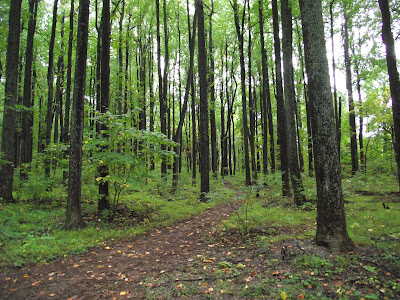Brisk mornings, the sun sleeping in longer each day, the leaves turning. This is the time of year that some look upon with a sense of sadness as Summer fades and the sentinels of Winter return. Yet for me, Fall is a magical time that reminds me of the cycle of life itself. Have you ever reflected deeply upon the messages that trees have to offer about our own existence, our universe, and the value of life? Trees are in fact a unique mirror reflecting back to us important lessons if we take the time to stare into them. Trees speak to me, and I to them.
The roots of great trees are no different than those that anchor us. Great trees have roots that run deep and wide. Like the values in our lives that hold us in place, roots establish our place in the world. The trunk holds within it the very nature of who the tree is and like character, it defines our identity, visible to anyone. Every tree is unique and no two trees are exactly the same just like no two humans are the same. Trees are willing to spread their seeds to the wind without the assurance they will take root and grow. Are we selective in where we allow the seeds of our own efforts and life to take root or are we willing like the trees to share our fruits with any and all trusting the spirit of the universe to select the right soil and location?
As the leaves begin to turn and fall, it reminds me of the cycle of new birth, life, and death of the cells in our own bodies. What takes an entire year for a tree, happens continuously within us. We may lament the passing of Summer, but the 365 days of our world pass in an instant within us. Trees know no time, only the natural process that is a part of their being. Without this cycle, our own bodies would die instantly just as trees rely on the seasons to fuel their own growth. Trees sing forth with a great array of color before they enter a period of internal growth, consuming the energy gained throughout the Summer. The explosion of color we marvel at in Fall, is a reflection of the energy that drives our own personal growth. And as Fall gives way to Winter, the trees stand naked against the cold winds and snow, with feet planted firmly in the ground, withstanding the assault with their eyes and arms toward the heavens knowing the warmth of Spring will in fact return and new growth will burst forth.
Trees with shallow roots can fall victim to fierce winds, just like those without strong values can falter and break. Storms can shake the leaves from branches or even break them. For me, this is like the trials we all face in life, pruning away the weak areas making room for new growth or in some cases re-shaping us to grow in a different direction. As snow inevitably comes to blanket the ground and branches, the bark acts as an insulator protecting the essence of life within. The bark in our own lives is an extension of the roots and trunk, allowing us to be touched by the cold yet not defeated.
Trees can teach us about how we should live. The shade from a great tree, the shelter of its branches, and the nourishment it offers other creatures knows no prejudice. A tree does not discriminate against those that can find protection, solace, and enjoyment under its loving care. It stands tall and confident welcoming any and all that pass its way. Do we live our own lives the same way? Do those that pass our way find cool refreshment in our shade or do we push them away back out into the hot sun? Will people that land on our branches find a perch to rest before continuing their journey, or do we shake them off? A tree knows no such behavior.
Trees speak to me, and I to them. Next time you see a tree, let its message of strength, hope, and faith speak to you. Stand in a forest and reflect upon how each tree is unique yet finds itself in great company with others, not feeling jealous or envious of those around it. Let the trees speak to you, and if you quiet yourself long enough, perhaps you too can speak back with thanks and gratitude.
Duane Grove is founder of Connect2Action, a strategy execution specialist at the intersection of employee engagement and executive leadership, igniting innovation as a lever to accelerate your growth. Follow Duane on Twitter @connect2action and connect with him on LinkedIn, Facebook, and Google+. Learn more by visiting www.connect2action.com.






